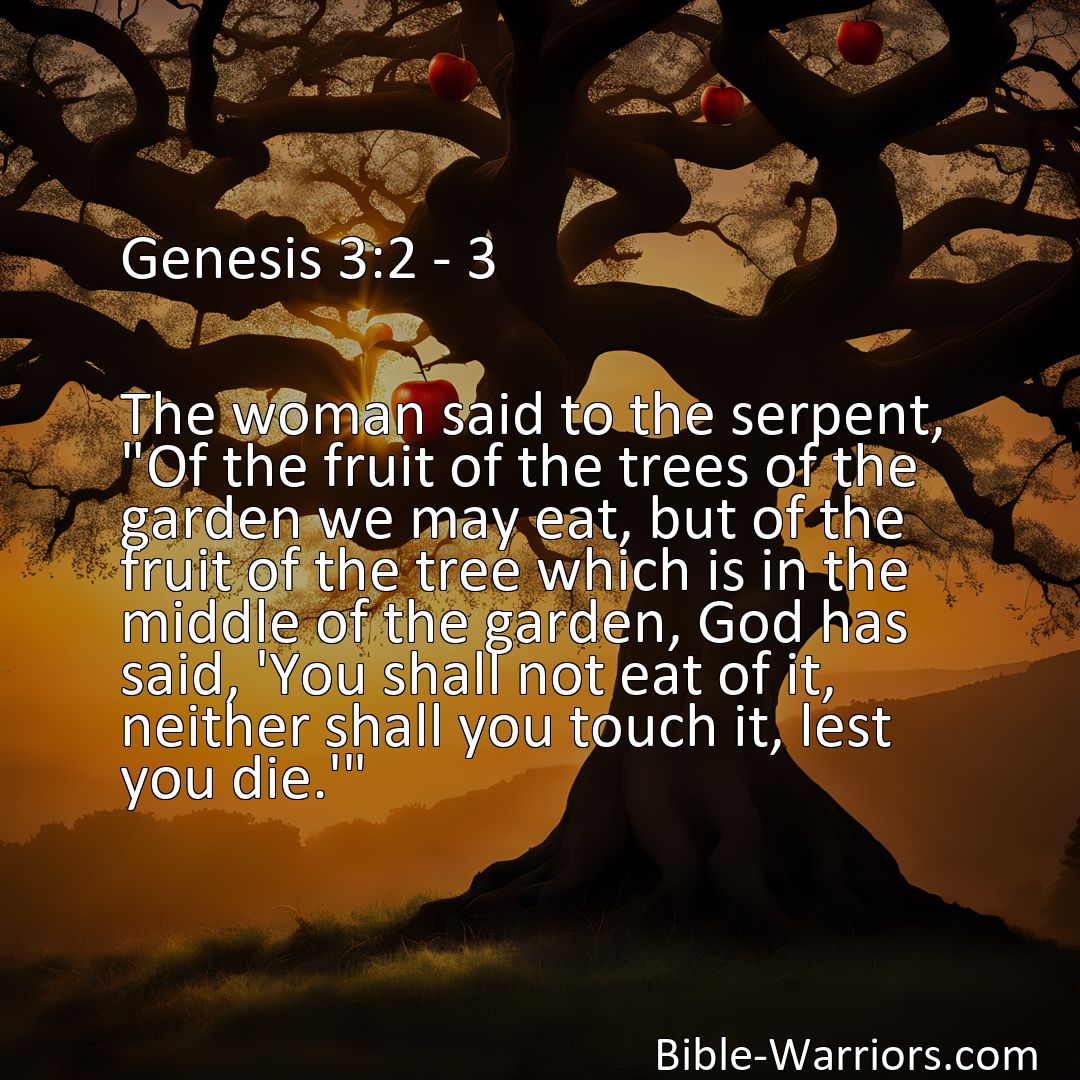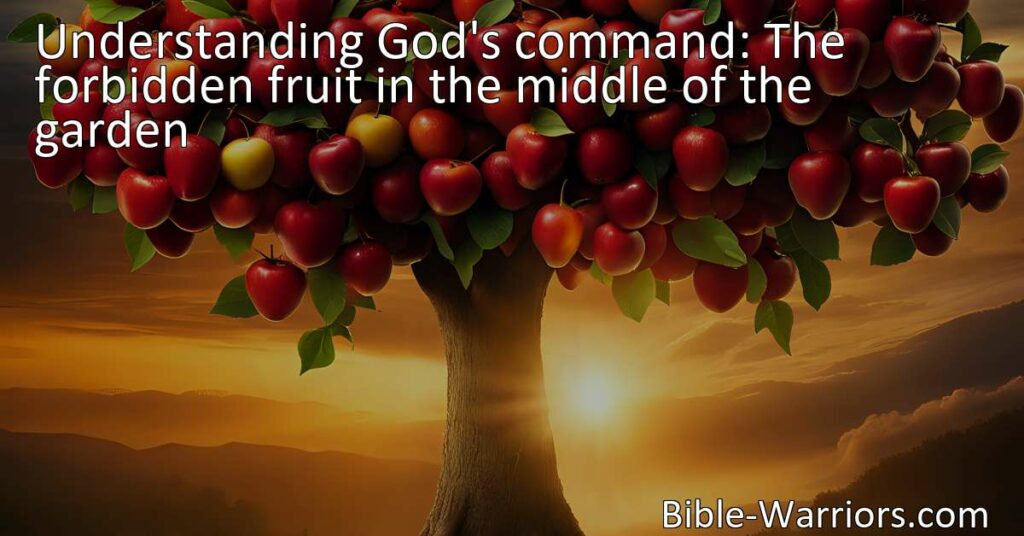Genesis 3:2 – 3 – The woman said to the serpent, “Of the fruit of the trees of the garden we may eat, but of the fruit of the tree which is in the middle of the garden, God has said, ‘You shall not eat of it, neither shall you touch it, lest you die.'”
Table of Contents
Have you ever wondered why God gave Adam and Eve a command not to eat from the tree in the middle of the Garden of Eden? What was so special about this fruit that they were forbidden to partake of it? Let’s delve into this biblical passage from Genesis 3:1-3 and explore the significance of God’s command.
In this verse, we encounter a conversation between Eve and the serpent, which ultimately leads to the downfall of humanity. Eve first tells the serpent that they are allowed to eat from the fruit of all the trees in the garden, except for the one in the middle. She states that God has warned them not to eat it or even touch it, lest they die. But why did God give this command in the first place? And why did Eve feel the need to add that they shouldn’t touch it?
One possible explanation is that this command served as a test of Adam and Eve’s obedience and loyalty towards God. By giving them this restriction, God was providing them with an opportunity to demonstrate their trust and faithfulness. Just like a parent sets boundaries for their children, God was establishing rules to protect them and ensure their well-being.
By forbidding them to eat from the tree in the middle of the garden, God was teaching Adam and Eve about the consequences of disobedience. He wanted them to understand that straying from His will would lead to disastrous outcomes. In this case, God had promised that death would be the result of eating this fruit.
However, it is interesting to note that Eve adds the stipulation of not touching the fruit. This extra precaution might indicate Eve’s lack of full comprehension of God’s command. It shows that she may have misunderstood or misinterpreted His words. God had simply said not to eat from the tree, not to avoid touching it. Perhaps Eve’s exaggerated caution highlights the skepticism and doubt that would ultimately lead her astray.
This passage also prompts us to reflect on the nature of temptation. The serpent, who was later revealed to be Satan himself, manipulates Eve by distorting God’s command. He questions whether they will truly die if they eat the forbidden fruit, planting seeds of doubt in Eve’s mind. Satan’s cunning tactics reveal the deceitful nature of temptation, often appealing to our desires and promising pleasure or power.
So what can we learn from this account? One significant lesson is the importance of trusting and obeying God’s commandments. Just as Adam and Eve were given a clear directive from God, we too have been given guidelines in the form of His Word. The Bible is filled with instructions and wisdom to guide us through life and protect us from the consequences of sin.
Furthermore, this narrative teaches us the danger of succumbing to temptation. Eve’s decision to eat the forbidden fruit led to disastrous consequences. It brought about a separation from God and introduced sin and suffering into the world. Bestowed with free will, Adam and Eve had the choice to obey or disobey, and their choice had far-reaching implications.
As we strive to understand God’s command regarding the forbidden fruit in the middle of the garden, it is essential to recognize that God’s commands are given out of love, not limitations. He desires our best and wants to shield us from harm. Just as a loving parent sets boundaries for their children’s safety, God sets boundaries for our spiritual well-being.
In conclusion, the command concerning the forbidden fruit in the middle of the garden holds profound significance. It underscores the importance of obedience, trust, and the recognition of God’s authority. By understanding the reasons behind God’s commandments, we can navigate through life with wisdom and discernment. Let us remember that God’s love and guidance are meant to protect us and lead us to a life of fulfillment and peace.
Freely Shareable Bible Verse Image Genesis 3:2 – 3
I hope this Bible verse image brings you hope and peace. Share it with someone who needs it today!



